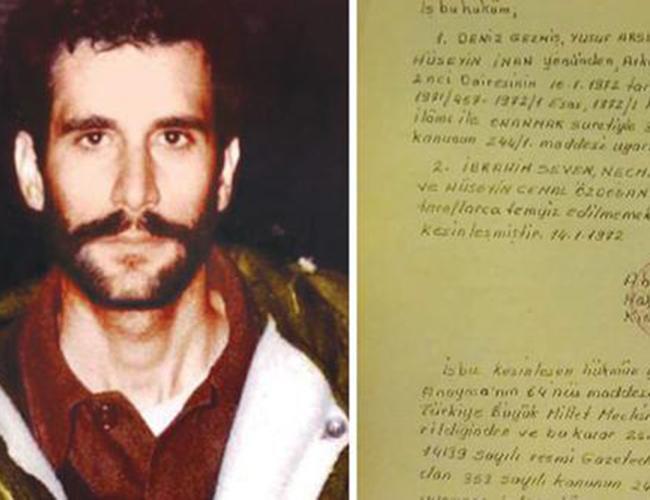Man buys death warrants of Turkish revolutionary leaders to kill material value
Banu Tuna – ISTANBUL

A man who bought the original death warrants of three Turkish revolutionaries, who were executed in 1972, has said they will produce 1,000 replicas of the document in a bid to make it invaluable in terms of cash.
Student leaders Deniz Gezmiş, Hüseyin İnan and Yusuf Aslan were hanged on May 6, 1972 at the Ulucanlar Prison in Ankara after the March 12, 1971 military coup.
Mehmet Özgür Boza, owner of an education consultancy company in Istanbul, bought one of the original copies for 47,500 Turkish Liras, roughly $12,000, at an auction in Istanbul, which opened at 5,000 liras on Nov. 18.
Boza told Hürriyet on the phone that his initial goal was to tear the “document of shame” but later decided not to do so following an online campaign that called on him to secure it in an archive.
Culture Minister Ertuğrul Günay and a group of intellectuals were among those who opposed the destruction of the document.
“I had some money and went to that auction only to buy that specific document,” Boza said.
The sale of such a document for financial benefit had irked him.
“I will give the warrant to the Ulucanlar Prison Museum for temporary exhibition and make 1,000 copies of it to distribute to those who want it. Everyone should know that this verdict does not have material value,” he said.
“No one should benefit from the death of others. Who could benefit from the execution of three young people?” Boza said.
The Deniz Gezmiş Foundation and his brother Hamdi Gezmiş also hold one copy of the document each.
Gezmiş, İnan and Aslan were found guilty of “attempting to change all or part of the Constitution of the Republic of Turkey” as the founders of the People’s Liberation Army of Turkey (THKO).
Gezmiş and his colleagues have become important figures for the Turkish left. Mahir Çayan, the leader of another revolutionary group, and his eight comrades who were killed in a clash with security forces on March 30, 1972 after abducting two NATO technicians and demanding the executions be cancelled in exchange for their return. The posters of images of Gezmiş, Çayan and their colleagues have become a common sight at protest rallies.
















